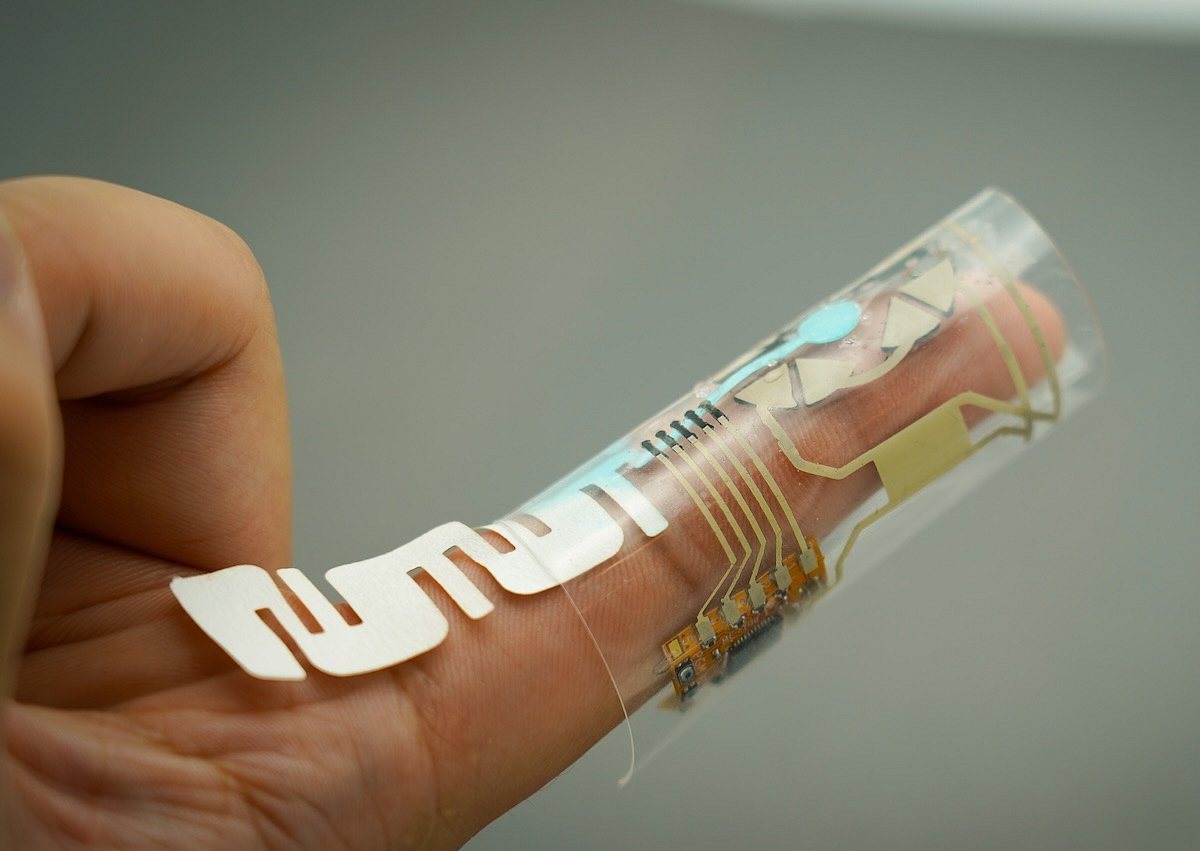Get Healthy!

- Dennis Thompson
- Posted September 4, 2024
Your Health Monitored at the Touch of a Finger
A sweat-powered finger wrap could make monitoring a person’s health as easy as wearing a Band-Aid, researchers report.
The electronic wrap measures blood levels of sugar, vitamins, drugs and other substances by analyzing the sweat from a person’s fingertip, researchers reported Sept. 3 in the journal Nature Electronics.
The device also draws its power from the same fingertip sweat it uses for analysis, researchers said.
“This is automatic health monitoring at your fingertips,” said co-lead investigator Shichao Ding, a postdoctoral researcher at the University of California, San Diego's Jacobs School of Engineering. “The wearer can be resting or asleep, and the device can still harvest energy and track biomarker levels.”
Fingertips are the body’s most prolific sweat producers, researchers said in background notes.
Each fingertip is packed with more than a thousand sweat glands, which can produce 100 to 1,000 times more sweat than other areas of the body, researchers said.
To use this sweat as a means of tracking human health, researchers attached several electronic components to a thin, flexible and stretchable polymer that can wrap snugly around a person’s finger.
The wrap contains biofuel cells that convert chemicals found in sweat into electricity, which is stored in a pair of stretchable silver chloride-zing batteries, researchers said.
The batteries in turn power four sensors that track specific biomarkers like glucose, vitamin C or levodopa, a drug used to treat Parkinson’s disease. A small chip processes signals from the sensors and transmits the data via Bluetooth to smartphone or laptop apps.
In tests, a subject wore the device throughout the day to track blood sugar levels during meals, lactate levels during exercise, vitamin C levels while drinking orange juice, and levodopa levels after eating fava beans, which are a natural source of the compound.
The device’s sensors can be swapped out to analyze sweat for different types of biomarkers, researchers noted.
They also could be used in combination with other devices to help keep people healthy – for instance, by signaling to an insulin pump any swings in a diabetic's blood sugar levels.
“Autonomous power, sensing and treatment all in one device -- that’s the ultimate goal,” Ding said in a university news release.
More information
The U.S. Centers for Disease Control and Prevention has more on monitoring blood sugar.
SOURCE: University of California, San Diego, news release, Sept. 3, 2024







